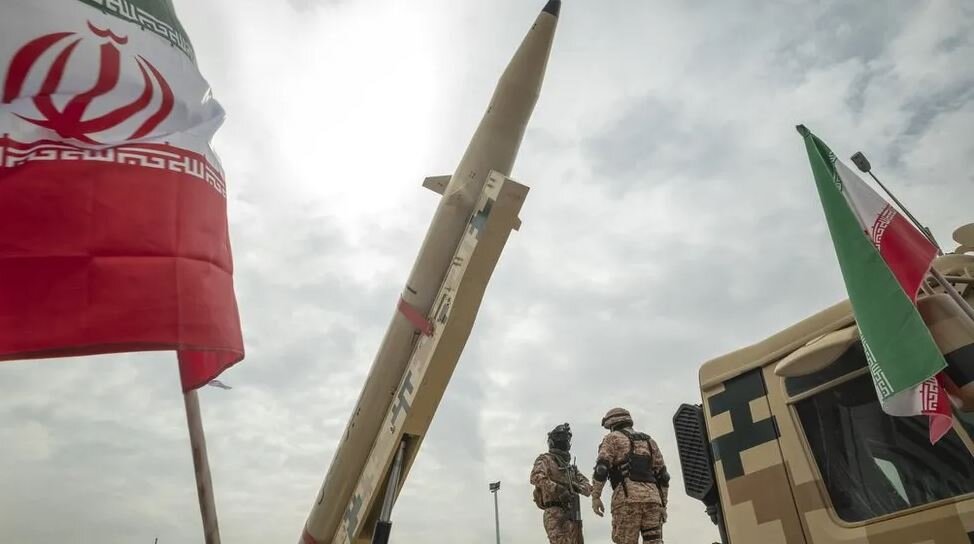Why the West is worried about the growing use of Iranian weapons

TEHRAN - For the past two to three decades, the U.S. and its allies have turned West Asia into an epicenter of violence, disorder, and misery.
Marauding Western troops have been scouring the area for oil and wealth while arguing with people back home, who find it increasingly challenging to avoid plummeting into the depths of poverty with each passing day, that they are spending the citizens’ hard-earned money on war to protect them from “terrorism”.
Hardly any part of West Asia has been able to evade the watchful gaze of the West's covetous interests. From Egypt to Palestine, Syria to Iraq, and Iran to Afghanistan, all corners of these ancient lands have felt the repercussions of Western imperialism in one way or another. Nations have been trapped in a distressing cycle of chaos and instability either after direct military attacks or attempts at orchestrating color revolutions.
Like all colonial practices, the denigration of a subjugated nation is only as important as stationing troops there. West Asian countries have been told the lie that they are incapable of hedging against the enormous might of the U.S. and its allies no matter what. Even when striving to protect their territories from Western-backed terrorists, they are told to look to the U.S. itself for assistance.
That’s why when a scribe of the U.S. empire chooses to caution the Biden administration about the “disturbing development of Iran’s weapons transfers”, we can be sure that a tectonic shift is unfolding in West Asia and perhaps something is happening that has never occured before.
The article reiterates rejected claims that Russia has been leveraging Iranian-produced Shahed drones to significantly impact the situation in Ukraine and that the Sudanese military is employing Mohajer-6 UAVs to thwart paramilitary forces. The piece also highlights numerous assaults on illegal American bases in Iraq and Syria, along with attacks on Israeli vessels in the Red Sea in the past months. The writer implies that Resistance groups have been able to strike Israeli and American interests mostly thanks to the weapons Iran has provided them with.
While the writer deliberately ignores the root cause of these attacks, which is Israel and Washington’s occupation of West Asia, it very correctly highlights an outsize concern of the West. The defense and military achievements American officials liked to refer to as “photoshopped” can no longer be overlooked, and have already begun to pose a challenge to Western dominance.
After enduring the 8-year war imposed on Iran in the 1980s, the nation realized the critical need to establish a robust and self-reliant military system to safeguard its hard-won independence. During the war, Iran was compelled to rely on the import of outdated missiles from Syria and Libya. Over time and with unwavering resolve, it transitioned towards indigenous weapons development. While attempts to produce fighter jets were unsuccessful, Iran, in defiance of Western pressure, sought potent alternatives and ultimately succeeded in creating the very drones and missiles the West so passionately detests today.
Iran's arsenal presents a strategic advantage. Its cost-effective projectiles can precisely hit and destroy designated targets or force adversaries to expend considerably more resources to intercept them.
After establishing formidable deterrence and compelling the U.S. to renounce the "all options on the table" approach and declare its lack of desire for war with Iran, the nation began to transfer its capabilities to Resistance groups. Despite Western efforts to portray Iran as an imperialistic force akin to the U.S. in the region, Tehran has consistently demonstrated that it solely supports Resistance groups, and does not make decisions for them.
Iran's remarkable and advanced military achievements, its willingness to share expertise, and its mutually beneficial partnerships with regional nations, only bode badly for the U.S., which is neither capable of curtailing Iran’s military capabilities nor undermining its alliances.
Now, in the Atlantic Council’s words, Iran is pipping countries like Russia as a major arms supplier. This could mean that opposition to American and European hostilities may potentially proliferate to other regions and ultimately hinder the West's unimpeded exploitation of resources in Asia, Africa, and South America.
Leave a Comment